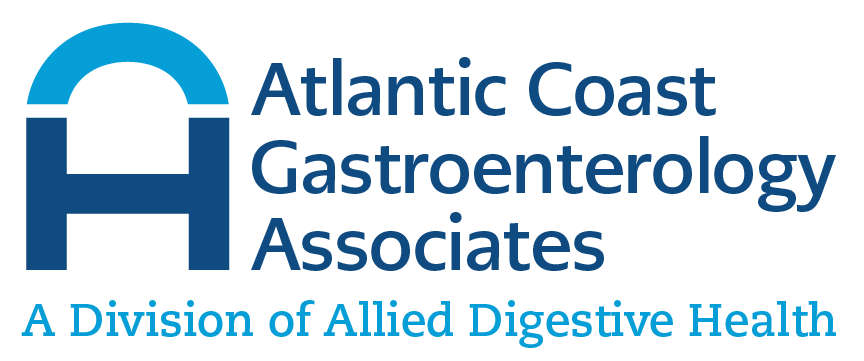Gallstones Removal Process: What to Know and What to Expect

- October 20, 2022
What to Know About Gallstone Removal
The gallbladder is a small, pear-shaped organ that contains bile, a fluid crucial in food digestion. Gallstones are hard, pebble-like pieces of material the size of a grain of sand that forms in your gallbladder. They usually comprise bilirubin or cholesterol. The gallbladder can make several tiny stones as small as a grain, one large gallstone the size of a golf ball, or a mixture of small and large formations.
Gallstones can block the bile ducts in the biliary tract, causing sudden pain in the upper right abdomen. The pain, known as biliary colic or gallbladder attack, is one of the severe symptoms of gallstones. If left untreated, gallstones can cause severe complications, including inflammation of the following:
– pancreas or pancreatitis
– bile ducts or cholangitis
– gallbladder or cholecystitis
In some cases, gallstones may not cause blockage and are painless. These usually don’t require any treatment. If you decide against surgery to remove the gallstones, it’s crucial to take steps to prevent complications. These include:
– Staying close to a healthy weight by getting regular exercise and observing a balanced diet
– Avoiding rapid weight loss techniques or procedures
With that in mind, here’s what to know about gallstone removal.
Do I Need Surgery for Gallstones?
If gallstones don’t cause symptoms, you probably don’t require any treatment. If you feel comfortable managing infrequent and mild gallstone attacks or your doctor thinks you’re not likely to have serious complications, you may not need surgery. Your doctor may recommend surgery to treat gallstones if you’ve had repeated gallbladder attacks. This type of surgery is called cholecystectomy, one of the most common surgeries in the United States.
Surgery is the best treatment option for managing and preventing further gallstone complications. Since surgery is prevalent, doctors have extensive experience with it. Your body will work fine without the gallbladder, but there might be slight changes that you probably won’t notice.
If you have sickle cell or other blood disorders, your doctor may recommend doing a cholecystectomy as a precautionary measure, even if symptoms are absent. Before surgery, your doctor will run several tests to check your health status. These include:
– An ultrasound
– Blood tests
– A CT scan or MRI HIDA scan to get better images of the blocked ducts
– Endoscopic ultrasonography
Types of Surgery for Gallstones
When doctors recommend surgery for gallstone disease, they can use one of two methods for gallbladder removal:
Open Cholecystectomy
In this type of surgery, the surgeon makes a 5-7-inch incision on the belly to remove the gallbladder. The approach is recommendable for people with a bleeding disorder. People with gallstones in the severe form may also be beneficiaries of open gallstone surgery. Other candidates are people who are overweight or in the last trimester of pregnancy.
Laparoscopic Cholecystectomy
Physicians refer to this type of surgery as “keyhole surgery” because it involves making four tiny cuts on the belly. They then insert a thin, flexible tube through the openings containing a light and a small video camera into the abdomen. The camera helps the surgeons see the gallbladder better, allowing them to insert special tools to remove the ailing organ.
With both types of surgery, the surgeon will give you general anesthesia to help you sleep through the procedure and not feel any pain.
Other Treatments
Doctors may use nonsurgical treatment for gallstones in particular situations, for example, if you’ve had cholesterol stones or a severe medical condition that prevents surgery. Gallstones may return with treatment, so it’s essential to get regular treatment for the disease for a long time. Sometimes, you may undergo therapy for the rest of your life.
Some non-surgery medically-reviewed treatment approaches include the following:
– Shock Wave Lithotripsy: Your doctor may use this method to break gallstones into smaller pieces, but the procedure is rare.
– Oral Dissolution Therapy: These medicines contain bile acids that dissolve gallstones. They work best in breaking up small cholesterol stones, and treatment may continue for at least three years to remove all the particles.
– ERCP (Endoscopic Retrograde Cholangiopancreatography): It’s a common approach to removing gallstones stuck in the bile pipe.
Gallbladder Surgery Risks
The good news is that you can live your life just like any other healthy person after gallbladder removal because the liver can produce sufficient bile on its own. It’ll move to the small intestines even if the gallbladder is missing.
While doctors believe gallbladder surgery is safe, some risks factors of gallstones surgery exist, including:
– Bleeding
– Infection
– Heart problems
– Liver disease
– Problems with anesthesia
– Bile duct damage
– Swelling
– Pneumonia
– Deep vein thrombosis or blood clots
– Damage to the blood vessels, bowel, or intestines
You may also develop what doctors call post-cholecystectomy syndrome (PCS). It happens if gallstones remain in the bile ducts or bile leaks into the stomach. PCS symptoms are similar to gallstones, including diarrhea, bloating, heartburn, and belly pain.
Recovery
The length of time it takes to recover after gallbladder removal depends on the type of surgery you had. You may have to stay in the hospital for a few days after the open surgery. It may take between six and eight weeks to heal completely.
Laparoscopic procedures are less invasive, and you’ll have less pain and heal faster than when you have open surgery. Most people can go home the same day after the procedure. You’ll also be able to resume your routine within two weeks.
Final Thoughts
The gallbladder stores bile, a liquid necessary for digestion. When the gallbladder contracts, it pushes the bile into a tube that transports it to the small intestine. Gallbladder stones can inhibit the normal functioning of this organ, inflicting pain and other severe complications. Gallbladder surgery can help in treating the condition.
After treatment, you need proper care during and after recovery. Talk to a professional healthcare provider to get the support you need at this time. At Atlantic Coast Gastroenterology Associates, we aim to offer cutting-edge treatments for gastrointestinal disorders. Our highly skilled team embraces innovative solutions for specialized patient care. Contact us to learn more about our services.
Footer
Quick Links
Locations
Brick Office
732-458-8300Brick Medical Arts Building
1640 Route 88, Suite 202
Brick, New Jersey 08724
Neptune Office
732-776-9300Jersey Shore Medical Arts Building
1944 Corlies Ave. Suite 205
Neptune, New Jersey 07753
Jackson Office
732-928-2300706 Bennetts Mills Road
Jackson, New Jersey 08527
© All Rights Reserved
